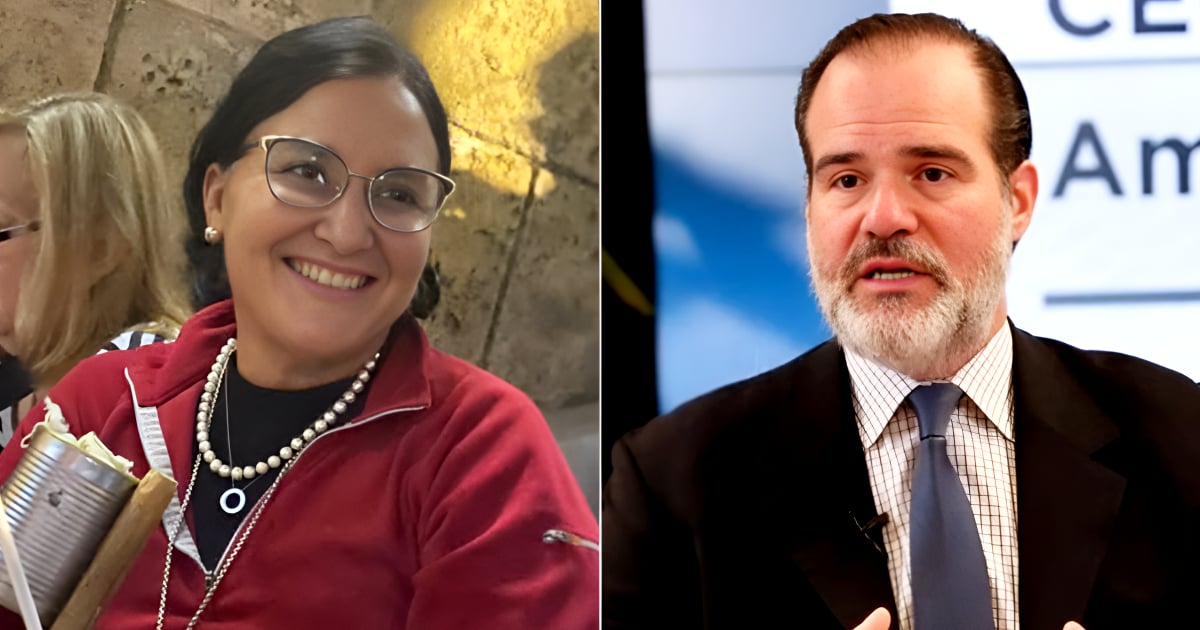In a surprising twist, the Cuban regime has asserted that Cuba "was never and is not a priority for Trump," despite years of claiming the damaging impact and hostility of the former U.S. president towards the so-called "Cuban revolution." This statement deviates from the official narrative that has consistently blamed the current crisis on the "tightening of the blockade" and the "over 240 measures" enacted by Trump during his first term.
Johana Tablada de la Torre, the Deputy Director-General of the U.S. Directorate at Cuba's Ministry of Foreign Affairs (MINREX), emphasized in a social media post, which was echoed by the pro-regime site Cubadebate, that Cuba is not among the Republican's priorities as he seeks another term in the White House. She criticized Cuban-Americans who occupy prominent positions in the current Trump administration, accusing them of feverishly promoting pressure tactics against Havana.
The diplomat stated, "Except for the severing of diplomatic relations and a naval blockade of Cuba, which they proposed countless times, they managed to extract almost everything else from the Trump administration, for whom Cuba was never and is not a priority, but he aims to please Cuban-origin politicians who serve him best, despite having deceived him time and again."
This statement marks a notable shift in the Cuban regime's official narrative, which traditionally accused Washington of having an "obsessive fixation" on bringing down the "Cuban revolution," implementing policies aimed at economically strangling the nation. However, in her article titled "Claver-Carone and his Obsession with Cuba," Tablada de la Torre notably shifted focus away from the Republican, alleging that his actions stem from the influence of these actors rather than a genuine interest in relations with the island.
The diplomat overlooks two fundamental aspects. First, Trump's close ties with the Cuban-American community and Florida politicians, a state where the former president spends much of his time. His perception of Cuba as a harmful dictatorship to U.S. interests largely comes through this channel.
Secondly, related to Trump's psychology, he is known for his resistance to being guided or manipulated by advisors, maintaining a significant role in his decisions. Regarding Cuba, this suggests that the measures he took during his first term, as well as those announced for his second, originate from his vision of U.S. relations with the communist regime.
The claim that "Cuba was never and is not a priority for Trump" seems unsupported by facts but does represent a significant rhetorical shift from the regime's traditional stance, which has always concentrated its accusations of the "blockade" and other "aggressive policies" on White House occupants.
During Trump's first term (2017-2021), more than 240 measures were implemented to strengthen the economic embargo against Cuba, including the island's reclassification as a state sponsor of terrorism in January 2021. This approach was upheld by the Biden administration, except for the latter point, which was altered just days before the Democrat left office.
In January 2021, Cubadebate itself highlighted "the more than 240 measures of Trump against Cuba," emphasizing the unprecedented systematic hostility of Trump's government towards Cuba. However, in the extensive article published by the official site and penned at MINREX, no mention was made of the names of Cuban-American senators or congressmen, nor of Mauricio Claver-Carone, whom Havana now implicates as the Machiavellian figure influencing Trump.
In this context, it is striking that Tablada de la Torre claims "Cuba was never and is not a priority for Trump." The current geopolitical landscape, with the Russia-Ukraine war or the contentious search for solutions in the Gaza Strip, seems to absorb all media attention, potentially adding a veneer of analysis to the regime diplomat's conclusions.
Nonetheless, empirical evidence indicates that Trump treats every decision as a personal matter, and beyond the influence of his Cuban-American advisors and officials, he appears determined to reestablish U.S. influence in the region—a goal that evidently involves Havana.
Both in the Palace and at MINREX, tensions are high. However, the strategy involves blaming the "mafia-like" group of Cuban-Americans while barely brushing Trump, the Republican magnate, with criticism, as Havana begins to experience a mix of hopeful and anxious dreams about the shift in U.S.-Russia relations.
In the chaotic and unpredictable era inaugurated by Trump, the Cuban regime is crossing its fingers for the first conflict between the president and his subordinates—a behavior that marked his first term—and for the exit of the Cuban-American "hawks." Meanwhile, they are sweetening their approach to the Republican, hoping for a more favorable scenario where they can foster rapprochement and negotiations that ultimately result in the same outcome as the last 66 years: with the dictatorship firmly in power.
Trump's Policies and Cuba's Relations
What is the Cuban regime's new stance on Trump's priorities?
The Cuban regime now claims that Cuba was never a priority for Trump, marking a shift from their previous narrative of U.S. obsession with the island.
How did Trump's administration impact Cuba?
During Trump's first term, over 240 measures were implemented to tighten the economic embargo against Cuba, including reclassifying the island as a state sponsor of terrorism.
Why does the Cuban regime criticize Cuban-American politicians?
The Cuban regime accuses Cuban-American politicians of promoting pressure tactics against Havana and influencing Trump's policies towards the island.
